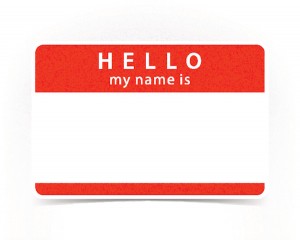Anyone who has spent any time with me knows that I’m focused on planning and preparation. Whether it is applying design thinking to the next meeting with a customer, or a manager doing a pipeline review, or developing and executing a deal plan;
I am hard over on planning and preparation. I can quote all sorts of statistics on the difference in results produce by those who plan and prepare, and those that wing it.
But sometimes, we lose track of how really important and impactful it is.
Sometimes, it takes a radically different experience to remind us of how the best professionals outperform everyone else–largely because of planning and preparation.
Recently, I had a vivid reminder about the importance of this.
I’ve just moved into a new home. I had reached the point where I thought I could invite some family and friends over for a dinner. It’s the first dinner I’ve ever prepared by myself.
I went through thinking about the menu, what food I needed to buy, and how I was going to prepare the dinner. I thought about the whole event and went at it.
About 90 minutes before the dinner, I realized I hadn’t thought about appetizers. I scrambled looking through the refrigerator and pantry trying to figure out what I might whip up. Fortunately, I had som packages of cheese, some bottles of olives, some salami I had put away for a lunch and some crackers. I was able to put together some nominal appetizers.
For the main course, I had thought about what I wanted to prepare. I had a menu in my mind, I thought about cooking times and what I had to do. As I prepared the meal, I didn’t have a recipe to follow, so I winged it–more garlic and basil, sometimes a little paprika and cumin, solve any flavor problems, so I’d keep adjusting and winging it to get something that seemed to have a little different taste. I put it all together and served a dinner—all roughly on time, all reasonably “presentable,”
The guests were very generous, “Dave, that was very good!” “It was a good meal, we really enjoyed it.” Translated, I got a good solid “B,” my mother was one of the the guests, she gave me a “B+,” but I discounted her score because mothers are always biased.
As I reflected on the dinner, I thought, “OK, a ‘B’ is OK, but what should I have done to get an ‘A+’?”
Now here’s the back story.
My wife, Kookie, was a professional chef. She had spent 3 years attending the best school for professional chefs. She had prepared and served thousands of meals for thousands of customers. Every meal was extraordinary. She created memorable experiences for her customers.
I reflected on “How would Kookie have done this meal differently?” I had years of watching/helping her in meals at our house and for our friends. Usually, my job was shopping, chopping, and cleaning up. But I learned a huge amount watching her.
I realized the difference between a good meal and an extraordinary experience was planning and preparation–accompanied by extraordinary execution.
I started realizing how much I had winged the meal I prepared, where Kookie would plan and leave nothing to chance.
Before a meal, even our evening dinners, she would think about what she wanted to prepare. She would start developing a menu. What was the theme of the meal–would it be Indian, Mediterranean, Asian, or a simple hearty meal? She would develop a menu, even if it was only 2-3 courses and it was only for the two of us.
She always wrote the menu down on a little white board in the kitchen. I used to think it was for me and our guests, but I’ve now realized it was for her. It was her high level plan for how she would execute an extraordinary meal.
Once she decided on the menu, she would search her data base and other sources for recipes. She would assemble the recipes most appropriate for what she wanted to achieve for the meal. Even if it was something she had prepared thousands of times before, she always printed out the recipe. She would mark it up, adapting it for this specific meal. Maybe a slight variation in the recipe, maybe some slightly different spices.
But she always had printed recipes for every meal she cooked. Again, it didn’t make a difference how many times she had cooked it before, she always printed the recipes.
On reflection, I realized the differences between what she did and what I did. I had a general idea of what I wanted to prepare for the dinner. I had it tucked away in my mind and “winged it” as I cooked. I thought, “I need to add a little more garlic,” or “It needs a little more pepper.” In winging it, I produced a “B” meal.
But Kookie produced memorable experiences. She would write down the menu. She would print the recipe, annotating it with the adjustments she wanted to make to make it an extraordinary event. She paid lots of attention not just to the food, but to the experience. What dishes, what placemats/tablecloth, what accompanying dishes.?
Everything was thought out and planned to create an extraordinary experience—and she did this for each meal she and I had by ourselves.
It didn’t take a lot more time for her to design and create that experience. She was such a master at designing them, and she had the tools and technology to help her do it very easily. But every meal was carefully planned and every recipe was printed out and adjusted.
In execution, she made it look very easy. Somehow, all sorts of dishes came together at the right time. In my meal, the sweet potatoes took a little longer than I expected. We got started on the meal and I brought out the sweet potatoes about 15 minutes later.
On reflection, I realized the difference in the meal I prepared and what a professional chef, Kookie, prepared. I looked at the difference between a solid “B” and a “memorable dining experience.” It was all in the attention to detail in the preparation and planning. Everything was carefully planned, there was no “winging it.” Everything was written down–the menu, the recipes, the serving dishes. Everything was designed around creating a memorable experience for the guests–the diners.
Kookie had a lot of world class chefs as friends. I got to observe what they did, how they planned and prepared, their attention to the customer experience, their attention to every detail. None of them every winged it. They had documented plans–menus, recipes, etc.
On reflection I realized the difference between how professional chefs create extraordinary dining experiences, and how “good cooks” operate.
The difference is profound. My food was good, Kookie’s would have had a depth of flavor and texture I could have never imagined. The way everything was put together and presented would have been profoundly different than the meal I assembled. The visual experiences, the dishes/cutlery, the complementary dishes would have built on the experience. The experience would have been very different.
I realized what separates professional chefs and the dining experiences they create from good cooks. They design the experience with the customer at the center of what they seek to do. They plan what they want to accomplish and how. They keep themselves focused by creating a written menu, more for themselves than the customer. They have recipes prepared and tailored for the experience they want to create. And they execute their plan with precision.
And they do this for every meal, whether a simple meal for two or a banquet for 100’s.
As much I focus on planning, preparation and sharp execution in sales, sometimes I forget what it really means and why it’s so important.
Doing something very different, like cooking, can actually remind us of the importance of these activities. It’s the difference between an OK performance and an extraordinary customer experience.
If you want to test this, go have dinner at an extraordinary restaurant. After your meal, ask to go to the kitchen. You will discover there is a board with the menus, there are recipes for each dish that will be prepared, there is a plan–even a diagram for how the food will be presented. You will discover the best chefs plan and prepare for every meal and the total customer experience. And that’s what makes them professionals.
Look at any great professional, whether a chef, a professional athlete/team, actor, or even a great sales person. The difference between being good and great is planning and preparation. It’s an attention to detail and the total customer experience. And then it’s an ability to execute on all of these.
Business & Finance Articles on Business 2 Community
(55)
Report Post



